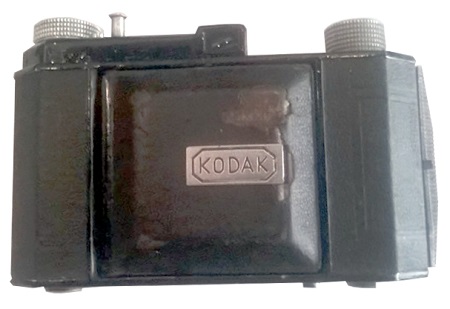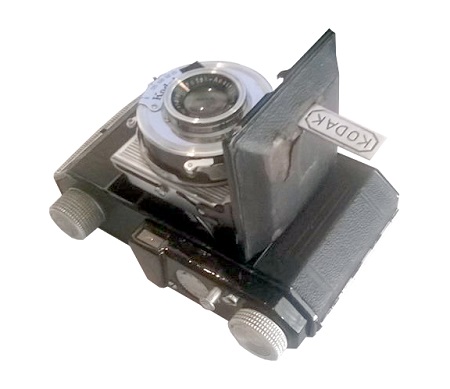The Retina cameras were manufactured at Kodak A.G. in what had previously been the Dr. August Nagel Kamerawerk factory in Stuttgart. The business had been purchased by Kodak in 1931 and was the Eastman Kodak Company's first serious foray into 35mm cameras.

The build quality of these cameras was high and the pre-war folding models in particular were a marvel of compactness and functionality. A folded Retina isn't much larger than an average 'point and shoot' digital camera and the lenses are still capable of producing high-resolution images that have only been surpassed in the last decade by digital technology.

The Retinas make up the principal group of Kodak's 35mm cameras, together with the cheaper line of Retinettes.
Some 220.000 Retina I cameras of various models were manufactured between 1934 and 1941.
The first Retina camera (type 117) was introduced in the summer of 1934, along with the brand new 35mm film daylight loading cartridge. This eventually became the standard for 35mm cartridges as we know them.

The build quality of these cameras was high and the pre-war folding models in particular were a marvel of compactness and functionality. A folded Retina isn't much larger than an average 'point and shoot' digital camera and the lenses are still capable of producing high-resolution images that have only been surpassed in the last decade by digital technology.
Sir Edmund Hillary chose a Retina camera to document his ascent of Mt. Everest; no doubt partly because of its compactness, which probably helped to make 35mm film popular.

The Retinas make up the principal group of Kodak's 35mm cameras, together with the cheaper line of Retinettes.
Some 220.000 Retina I cameras of various models were manufactured between 1934 and 1941.
The Retina II series was a more luxurious version with a coupled rangefinder and better quality lenses. 62.000 of these were manufactured between 1937 and 1941.
All camera production at Kodak A.G. stopped in 1941, but after the war, August Nagel's son, Helmut, took over and the company continued to produce and design Retina cameras until 1969.
